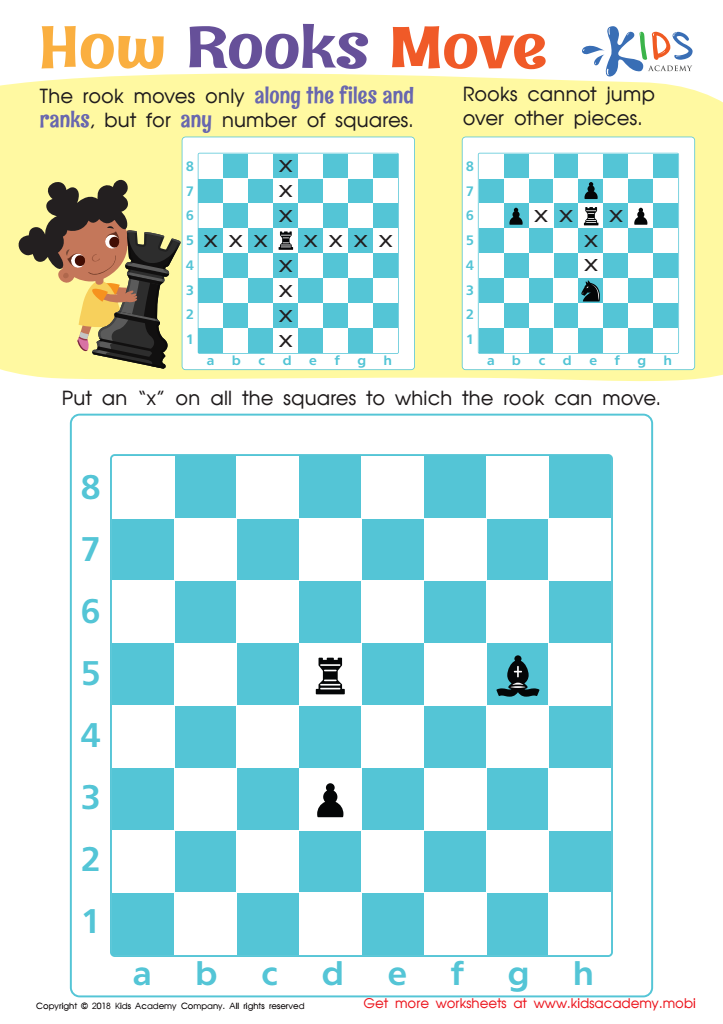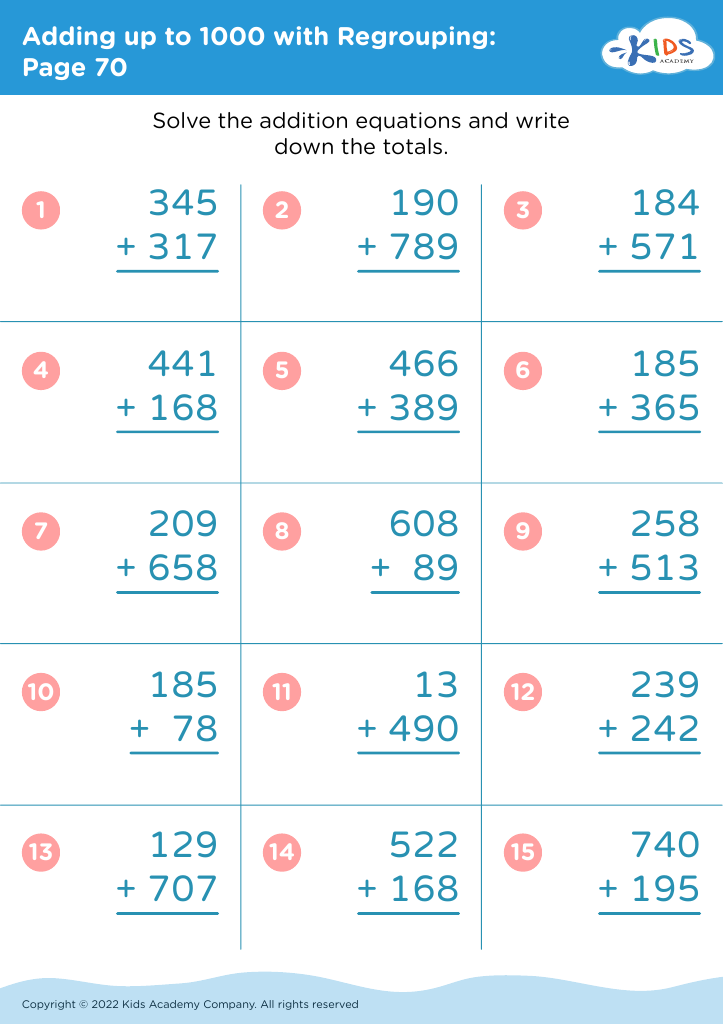Developing logic skills Worksheets for Kids
4 filtered results
-
From - To


How Rooks Move Worksheet
Question/Answer
What are some effective activities to train students’ Developing logic skill when teaching them about Adding up to 100 Without Regrouping?
Effective activities include using manipulatives like base-ten blocks for visualizing addition, playing math games that involve adding numbers up to 100, utilizing number lines to understand sequential addition, engaging in problem-solving tasks with real-life contexts, and conducting timed quizzes to enhance speed and accuracy in addition. These activities foster logical thinking and understanding of numerical relationships.
How to train the Developing logic skill in Grade 2 students learning about Adding up to 100 Without Regrouping?
To train Grade 2 students in developing logic skills for adding up to 100 without regrouping, use hands-on activities such as manipulatives (e. g. , base-ten blocks) for visual representation, interactive games that encourage mental math, and number line exercises to understand sequential addition.
How does the mastery of the Developing logic skill affect a student's performance at an early age?
Mastery of the Developing logic skill at an early age significantly enhances a student's performance by improving critical thinking, problem-solving abilities, and understanding of complex concepts. This skill fosters better mathematical and scientific reasoning, enhances decision-making capabilities, and supports the development of effective learning strategies. Consequently, students become more adept at academic tasks and navigating everyday challenges.
 Assign to the classroom
Assign to the classroom















